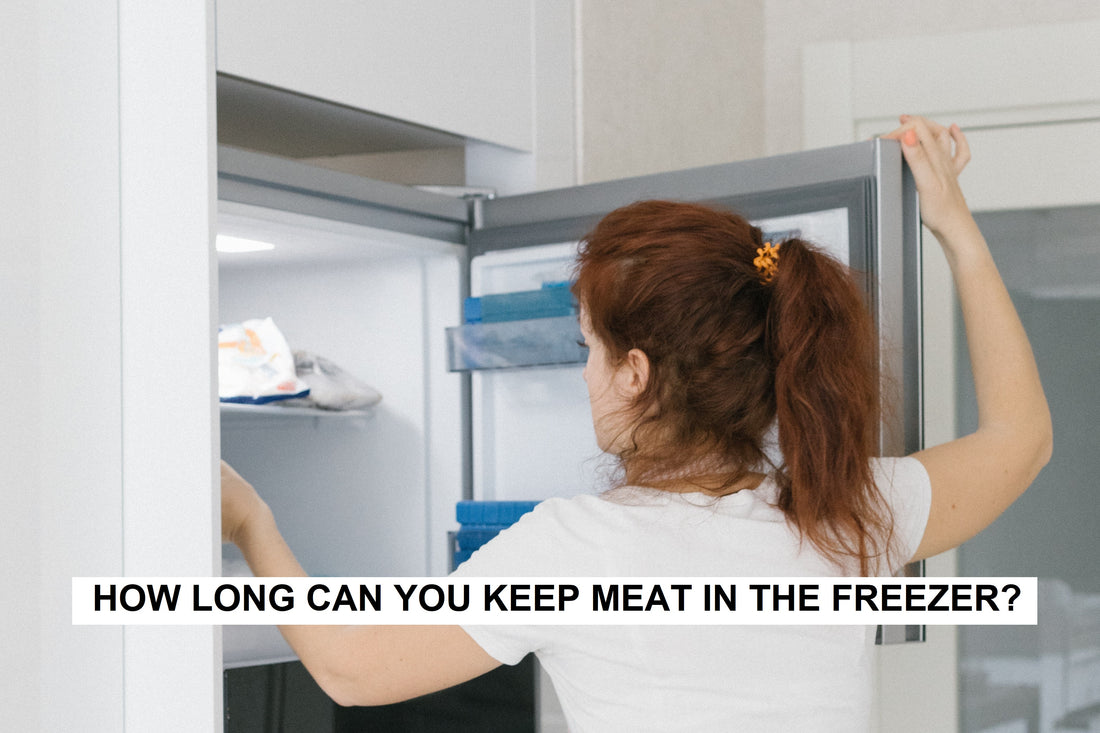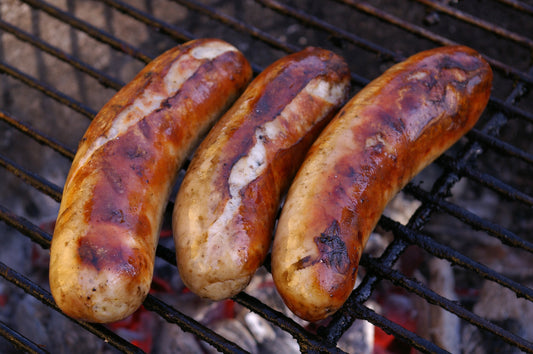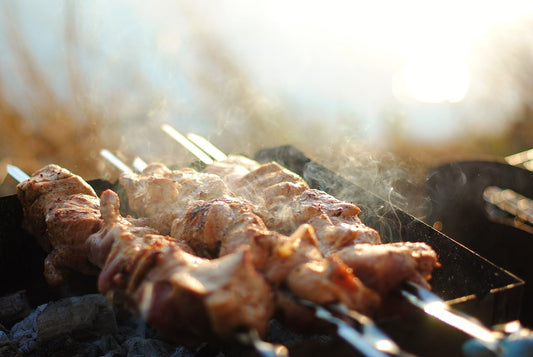Freezing meat is a great way to extend it's shelf life and ensure that you always have a supply of protein on hand. Whether you're a savvy meal prepper or simply looking to reduce food waste, understanding how long you can keep meat in the freezer is crucial. In this article, we'll explore the guidelines for safely storing different types of meat in your freezer.
General Guidelines for Freezing Meat
Before diving into specific types of meat, it's essential to know the general guidelines for freezing meat:
- Packaging: Proper packaging is key to preventing freezer burn and maintaining meat's quality. Use airtight containers, vacuum-sealed bags, or heavy-duty freezer wrap to protect your meat from freezer burn and odours.
- Labelling: It is good practice to label your packages with the date of freezing. This helps you keep track of how long the meat has been in the freezer and ensures you use the oldest items first (first in, first out).
- Temperature: Keep your freezer at 0°F (-18°C) or lower for optimal meat preservation.
Beef and Pork
- Steaks and Roasts: You can safely store beef and pork steaks and roasts in the freezer for 6-12 months. Vacuum-sealed cuts may last longer.
- Minced Beef and Pork: Minced meat has a shorter shelf life, usually around 3-4 months. However, well-packaged minced meat can last up to 6 months.
- Bacon: Bacon can be frozen for 1-2 months without significant quality loss.
Poultry
- Chicken and Turkey: Whole chickens and turkeys can be stored for up to a year. Chicken and turkey parts, such as breasts, thighs, and drumsticks, have a shorter lifespan of 9-12 months.
- Minced Chicken and Turkey: Minced poultry is best used within 3-4 months.
- Cooked Poultry: Cooked chicken and turkey dishes can last 2-6 months in the freezer.
Lamb and Game Meat
- Lamb and game meats like venison, rabbit, or elk can be stored for 6-12 months in the freezer, depending on the cut and packaging.
Offal /Organ Meats
- Offal/organ meats, such as liver or kidney, can be stored for 3-4 months.
Sausages and Processed Meat
- Processed meats, like sausages and hot dogs, have a freezer life of 1-2 months. It's best to consume them within this time frame for the best quality.
Thawing Meat Safely
When it's time to use your frozen meat, always thaw it safely. The best way to do this is in the refrigerator. Avoid leaving meat out at room temperature, as this can lead to bacterial growth.
In conclusion, the freezer can be a valuable tool for preserving meat. By following these guidelines, you can ensure your meat remains safe to eat and maintains it's quality for an extended period. Remember to label and date your packages, and always follow good food safety practices to enjoy your frozen meat to the fullest.
Quality Versus Food Safety
It's important to note that the recommended storage times mentioned earlier are primarily about maintaining the quality of frozen meat. Frozen meat can be safe to eat indefinitely if stored at the proper temperature. However, as time goes by, the texture and flavor may deteriorate, leading to a less enjoyable culinary experience. Freezer burn, which occurs when moisture escapes and affects the taste and texture of the meat, is one of the primary quality concerns. While you can technically eat meat that has been stored for a more extended period, it might not meet your taste expectations. Therefore, it's advisable to adhere to the recommended storage times to enjoy the best quality meat, but rest assured that your safety isn't compromised if you go beyond those timelines, provided the meat has been stored properly.
FAQ's
Can You Refreeze Cooked Meat Twice?
No, it's not recommended to refreeze cooked meat more than once. When you thaw and cook previously frozen meat, it changes the meat's structure and may lead to a loss of quality and safety. If you have cooked meat that you've previously frozen and then thawed, it's best to use it within a few days or find creative ways to incorporate it into new dishes.
How to Freeze Meat to Avoid Freezer Burn
Freezer burn occurs when moisture in the meat evaporates, leaving it dehydrated and affecting its quality. To avoid freezer burn, ensure your meat is well-sealed in airtight packaging, removing as much air as possible. Consider using vacuum-sealed bags, double wrapping with plastic wrap and aluminium foil, or using freezer-specific containers. Label the packaging with the date to track its freshness.
How to Freeze Cooked Meat
Freezing cooked meat can be a convenient way to have ready-made meals on hand. To freeze cooked meat, let it cool to room temperature first. Then, package it in airtight containers or freezer bags, removing as much air as possible. Label with the date and type of meat before freezing. When reheating, ensure it reaches a safe internal temperature to kill any potential bacteria.
How to Freeze Meat Without Freezer Bags
If you prefer not to use freezer bags, there are alternative methods for freezing meat. You can use airtight containers or glass containers with a secure lid. Ensure there is minimal air inside the container, as excess air can lead to freezer burn. Additionally, you can use freezer wrap, which is specially designed for freezing meat and works well when tightly sealed with freezer tape.
By following these tips, you can make the most of your frozen meat while ensuring its safety and quality.







